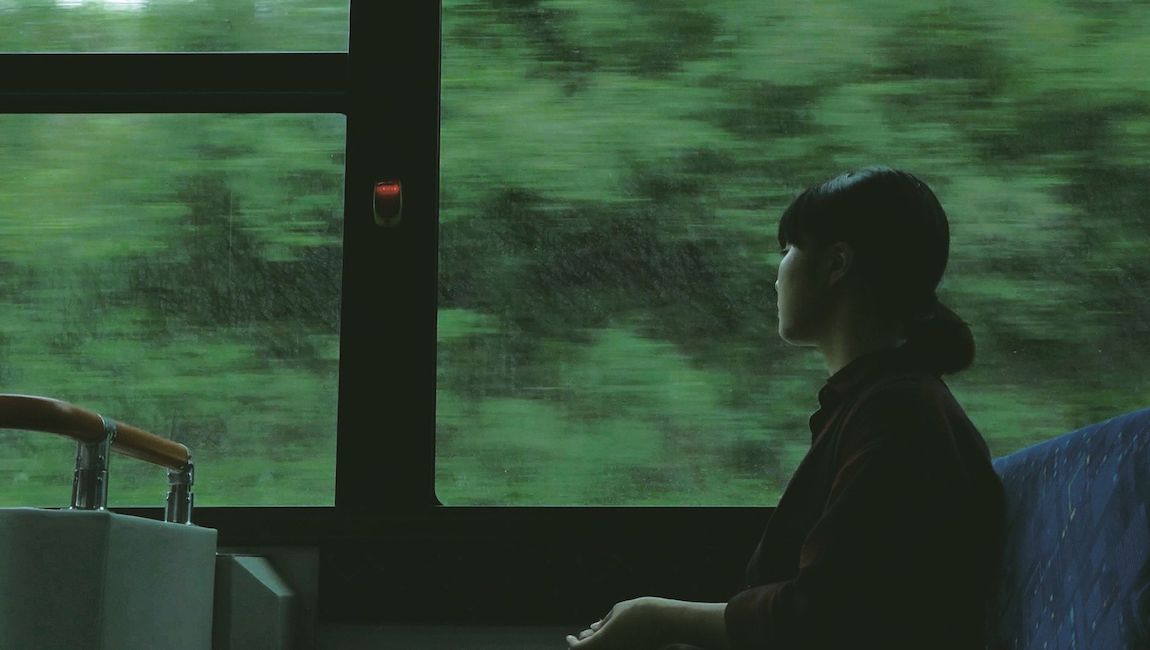Filmmakers Haruka Komori and Natsumi Seo interpret the title of their new essayistic documentary Double Layered Town/Making a Song to Replace Our Position very literally; a decade after the great earthquake of 2011 that rocked Japan (and which was directly responsible for the Fukushima nuclear disaster), the directors traveled to the town of Rikuzentakata, Iwate Prefecture, which was completely destroyed by a tsunami following the initial quake. A new city is now being built on top of the detritus of the old one, using the latter as a foundation for its modern urban center. This new city has been raised 40 feet higher than before, including a new sea wall and an intricate system of buttresses; as one person notes, absolutely nothing is the same except “the sky and the ocean”. Komori and Seo proceed to establish a workshop comprising four young adults who were children during the disaster, having them interview city residents about their memories of that epochal event. The workshop members then relay these different tales directly to the camera, seated in front of a plain, black backdrop and in medium close-up, not unlike subjects of portraiture. Interspersed with these talking head interviews is footage of the city being (re)built, replete with skeletal frames of in-progress buildings, construction equipment, and sprawling freeways stretching across the horizon line as far as the eye can see. The film also features a multitude of voiceover narration tracks, as we hear a short story (written by Seo) read aloud about a hypothetical version of Rikuzentakata in the year 2031.
It’s a fascinating, if occasionally dry, project, functioning almost like an academic exercise. The stories themselves run the gamut from bemused indifference — at least one person admits that the disaster barely affected them, that they don’t think about it much — to a heart-rending tale of a public servant forced to leave a woman to drown in order to save a car full of other people. Komori and Seo conflate different modes of contemporary non-fiction filmmaking in their project, aspiring towards something along the lines of Kiarostami or, especially, Jia Zhangke, probably contemporary cinema’s most celebrated surveyor of the shifting landscapes of modernity, both literal and metaphoric. Indeed, Double Layer Town would not be out of place as an addendum to Jia’s 24 City. But the emotions here are decidedly hypothetical, as the distancing effect created by the film’s structure tends to flatten every anecdote into the same monotone register. To the filmmakers’ credit, they dedicate the end of the film to exploring the practical and ethical issues of having the workshop participants relating other people’s oral history, largely settling on the idea that this kind of purposeful distancing effect accords traumatized people the space to honestly relay their stories. Whatever the case, the film is a good-faith effort to record the recent past for posterity’s sake, and to keep alive in one form or another these individual stories. If it’s lacking a certain emotional honesty, it at least makes up for it in formal rigor.
Published as part of Japan Cuts 2021 — Dispatch 1.







